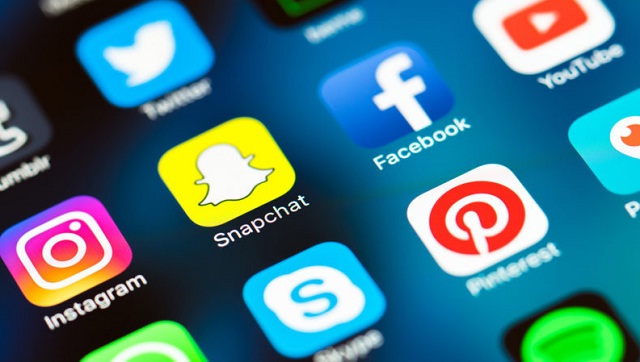
Washington, United States | AFP | Climate change, debt, mental health struggles and now the coronavirus: life is no laughing matter. But for under-30s the best way to stay sane is often to wisecrack.
“We joke that we post because none of us can afford therapy,” says Chuck Wentzell, 26, a member of Twitter group chats where gallows humor is the order of the day.
“Posting about it or making the jokes about it makes it feel somehow less real but also more manageable,” the high school science teacher from New Haven, Connecticut, tells AFP.
The tone of the humor isn’t to everyone’s taste — some may find it a little on the nail, and not exactly laugh-out-loud funny.
But for younger social media users, a gag that others could find flippant is sometimes a howl of frustration over the powerlessness of a generation unable to jam on the brakes in a world heading for the cliff edge.
These callow comics have been particularly prolific during the pandemic, which has infected six million people, killing 360,000 and laying waste to the global economy.
“Guys will stand 5’8″ from you and call it six feet,” tweeted a woman in New York, taking a sideways look at social distancing — and men’s tendency to exaggerate their physical attributes.
Other humorists focus on the absurdity of the business-as-usual approach to a worldwide crisis.
“People who are quarantining in jeans: what are you trying to prove?” tweeted New York-based writer @sarafcarter.
Another meme of uncertain provenance, but widely-shared among millennials, displays the caption: “Looking at the map for some weekend travel ideas.”
The image underneath is not of some faraway tropical paradise, but a floor plan of a three-room apartment.
The jokes, says academic Peter McGraw, are largely the product of “psychological distancing” — a mental retreat that gives the keyboard comedian the perspective to see through life’s ridiculousness.
Humor “has this interrupting feedback loop,” the behavioral economist and head of the Humor Research Lab at the University of Colorado Boulder told AFP.
For McGraw, a joke “makes the moment more bearable, the bearable moment makes the joke more likely, and so on.”
Like meditating or stress-cleaning your apartment, humor is “a way to kind of give yourself a sense of control in a world that seems uncontrollable.”
– Embracing absurdity –
Society has long turned to grim humor in dark times, of course, in political cartoons, comedy clubs, topical TV shows and numerous other forms.
But the new generation of morose mirthmakers has been able to take gallows humor out of smoke-filled bars and into the pantheon of internet virality (pun intended).
And as 2020 grows increasingly unpredictable and absurd, the onslaught of boundary-pushing irreverence has intensified.
In January, budding wits flooded social media with jokes about getting conscripted for World War III, after the death of top Iranian commander Qasem Soleimani in a US airstrike.
“Really looking forward to dying in the Strait of Hormuz just so Trump can get reelected,” Nick Golden, 26, quipped in a now-deleted Facebook post, just after the news of Soleimani’s death broke.
Golden, a government employee in Haverhill, Massachusetts, knew it was unlikely that the government would actually start drafting conscripts.
But for young men turning 18, the reality of even having to be on a register from which they could be plucked for battle brings with it the ever-present, low-level thrum of existential angst.
Joking, then, “is the only way to cope,” says Golden. “We have no choice but to indulge in the absurdity.”
A key element of the jokes is that they stem from what McGraw, the academic, calls “benign violations.”
The idea is that a situation can be invidious — a violation of the norm — without actually doing you much harm. A joke acknowledges the fear but also points out its absurdity.
And that, says McGraw, is why much of the coronavirus humor focuses on the banal, ridiculous but essentially harmless aspects of life under lockdown, such as the annoyance of people hoarding toilet paper.
Far less common are jokes about catching the virus or the pending global economic recession.
“It might be too big a violation right now,” McGraw said.
– ‘OK to laugh’ –
Ultimately, the weird memes and the inappropriate jokes are a way for younger people to express their frustration with the world at large.
By poking fun at problems, people achieve a sense of control, deflating their crisis into something less overwhelming.
“One of the things that is incredible about the human condition is our ability to find moments of levity, even in the worst situations,” said McGraw.
“The fact that people are making jokes is a good sign, because it means that they’re being connected.”
Back in New Haven, science teacher Wentzell couldn’t agree more.
“If it’s okay to laugh at something, then it’s not so serious that it’s the end of the world right this second,” he said.
And if nothing else, “it’s so much more comforting to be with 50 other people also screaming that than to be the only person yelling on the street that the world’s about to end.”
 The Independent Uganda: You get the Truth we Pay the Price
The Independent Uganda: You get the Truth we Pay the Price


